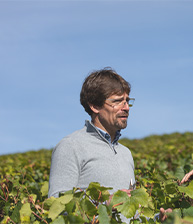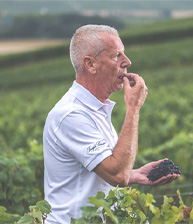TALKING HEADS

NICOLAS URIEL
In September, I will have been Chief Winemaker at Thiénot and in charge of partner relations for both Thiénot and Canard-Duchêne Champagne Houses for 15 years.

PATRICK MARTIN
I joined Joseph Perrier 40 years ago. Since 2000, my responsibilities have extended to take in the entire vineyard. I live in Verneuil, but regularly cover almost 115km when checking the health of the vines across all our plots.
.
How do you prepare for the harvest?
Patrick Martin: I prepare harvest intake schedules based on grape ripeness levels, adopting a plot-by-plot approach in the vineyard. We also need to book the lorries to transport the crates of grapes, and also a refrigerated van that brings snacks and cold drinks for the pickers. We also need to manage the arrival of 100 Polish temporary workers who help with the harvest. The workers are accommodated in the flats that are currently undergoing renovations. Generally, it’s all about planning.
Could you describe the journey of a bunch of grapes at harvest time? (from picking to vinification via destemming etc.)
Patrick : The grape picker snips the grape bunch and places it in a basket that weighs around 5 – 6kg once filled. The bunches are then transported by a ‘porter’ who transfers them to a larger crate weighing up to 45kg. Once two crates are full, using a wheelbarrow, he takes them to the tractor parked at the side of the road. We help the porter load the crates on the tractor, which can hold 24 in total. They are then transferred to the lorry.
Once the 129th crate is loaded on the lorry, the driver then heads for the press with a very specific schedule determined 48 hours previously.
What are the visible effects of climate change on the harvest, in terms of yield, grape quality and timing?
Patrick: This year the bunches should way up to 200g, making this an exceptional harvest. The weather this year has promoted good development in the vine, with a dry winter, rainy spring, then alternating hot and rainy conditions.
Nicolas Uriel: Until the 2010s, global warming had a positive effect on the Champagne harvest. The grape bunches are formed in the previous year’s buds, in a process known as floral initiation. Mild temperatures promote this floral initiation. With global warming, there are greater amounts of carbon in the air which encourages photosynthesis and higher temperatures. The grapes are increasingly productive and ripen more quickly and effectively. Over the course of 30 years, the average date for the first day of harvesting has advanced by 10-15 days. This trend of ripening in August has held for the last ten years.
Nicolas: At the end of ripening, the sugar accumulates in the grapes, acidity levels fall, and aroma precursors become concentrated. Given that the increase in sugar is often quicker than the heightened aromas, the grapes may be ripe for picking in terms of sugar concentration, but not in terms of aromas.
And disease?
Nicolas: Given the change in climate in recent years (2012, 2017 and 2021), we have had to deal with significant mildew, which develops on the leaves, then the bunches, and thrives in hot and humid conditions. ‘Flavescence dorée’ is a disease that originated in the Mediterranean and is starting to cause serious problems. It is carried by the American grapevine leafhopper, now present throughout Champagne.
Patrick: In 2021, the quality of the grapes on one of our organic plots was fine up until the start of July. From 14 July, mildew destroyed all the grapes and we were unable to harvest.
What is the harvest like for those involved?
Patrick: There is a really great atmosphere among the staff and Polish workers. At lunchtime we all eat together at Cumières or picnic in the vines – 130 of us in total. Through talks both at the start and during the harvest we also raise awareness of the dangers of drinking alcohol to excess. Some of the workers have been coming here for 35 years now.

